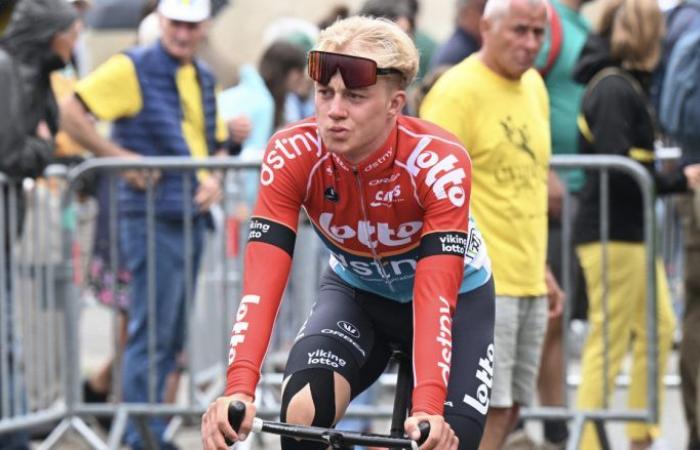
In the middle of the off-season, Maxim Van Gils surprised the Cycling world by expressing his wish to leave the team Lottery Dstnymanaged by Stéphane Heulotwith which he is under contract until the end of 2026. This announcement comes at a delicate moment: mid-November, an unusual period for such movements. The request for termination of contract Van Gils highlights a growing trend in professional cycling, where the early termination of commitments, once exceptional, is becoming more and more frequent… and our colleagues from the RTBF took stock of the situation.
Video – Heulot spoke on the Van Gils case at our microphone
Transfers in cycling: a changing playing field
Maxim Van Gilsaged 24, had a year marked by significant successes, which increased his attractiveness on the transfer market. His desire to change teams seems motivated by a more advantageous financial opportunity. Although Lottery Dstny extended his contract earlier this year to meet his expectations, the young rider now wants to explore other horizons, a decision which could earn him a higher salary.
In cycling, transfers do not work like in football, where a termination of contract is often negotiated between the parties with financial compensation. Traditionally, cyclists respect their contract until its end before looking for new opportunities. However, Van Gils' request opens the door to negotiations for compensatory compensation. Concretely, so that Van Gils can leave Lottery Dstnyan agreement must be found between the three parties concerned: the rider, his current team and his future team. This compensation aims to compensate the loss for the left team, as was the case for Primoz Roglictransferred from Jumbo-Visma has BORA-hansgrohe for a significant sum in 2023.
Lotto Dstny in a delicate position… what is the UCI doing?
Pour Lottery Dstnythe request for termination of contract is a hard blow. The Belgian team finds itself in a delicate situation. The late date of the request for Van Gils further complicates the situation, making the transfer market virtually closed. This growing trend of early termination of contracts in the peloton is causing concern among teams, who fear a disruption of traditional practices. More and more agents are influencing cycling, seeking to maximize profits for their clients, widening the financial gaps between the richest teams and those with more modest means.
Faced with this problem, theUCIthe governing body of world cycling, regulates transfers with precise rules. According to its regulations, a team wishing to recruit a rider under contract must first obtain the agreement of the current team and present proof of the termination of the contract to theUCI. In the event of non-compliance with these rules, sanctions are provided, such as financial compensation, suspensions or fines for the teams and agents at fault. However, the regulations of theUCI remain vague and subject to interpretation, making their application complex.
What outcome and what consequences?
Three outcomes seem possible for the affair Van Gils. The first would be a flashback, where the runner finally decides to stay at Lottery Dstny. However, this seems unlikely, as trust is now broken. The second possibility would be a legal battle, which could harm the winter preparations of Van Gils and have repercussions on his career. Finally, the most likely solution involves negotiations leading to financial compensation for Lottery Dstny. The Belgian team, whose financial health is fragile after the loss of its co-sponsor Dstny for 2025, will undoubtedly seek to maximize compensation to alleviate the impact of the departure of Van Gils.
This case highlights the growing challenges facing modern cycling, divided between the need to protect the integrity of contracts and the attraction of significant financial opportunities. The decisions taken in this matter could well influence the future of transfers and contractual relations in the professional peloton.





